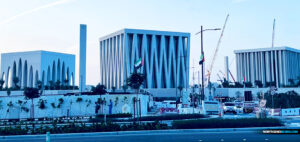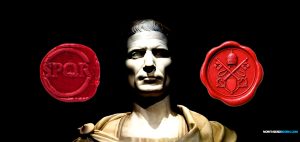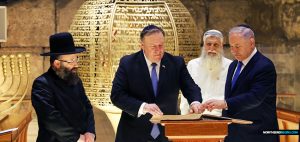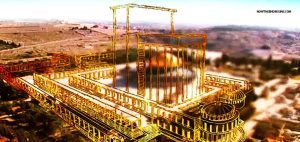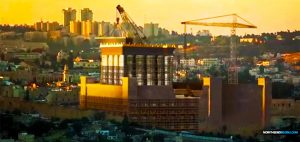Headline News
Egypt and Israel Edge Closer To War As Tensions Escalate
Diplomats scrambled to avert a crisis in relations between Egypt and Israel on Saturday, and the Israeli government issued a rare statement of regret for the killing of three Egyptian security officers by an Israeli warplane. Tensions between the two countries, which on Saturday led Egypt to announce that it would recall its ambassador from Tel Aviv, reached the worst point since the Camp David peace accords three decades ago, spurred by a burst of violence along their shared border in the Sinai Peninsula. A series of attacks there killed eight Israelis on Thursday; the Israeli government then retaliated against Gaza-based militants, and the three Egyptians died in the crossfire.

Nations Race to Defuse Crisis Between Egypt and Israel
CAIRO — Diplomats scrambled to avert a crisis in relations between Egypt and Israel on Saturday, and the Israeli government issued a rare statement of regret for the killing of three Egyptian security officers by an Israeli warplane.

Egyptians protested at the Israeli Embassy in Cairo on Saturday as envoys raced to repair relations between the two nations.
Tensions between the two countries, which on Saturday led Egypt to announce that it would recall its ambassador from Tel Aviv, reached the worst point since the Camp David peace accords three decades ago, spurred by a burst of violence along their shared border in the Sinai Peninsula. A series of attacks there killed eight Israelis on Thursday; the Israeli government then retaliated against Gaza-based militants, and the three Egyptians died in the crossfire.
After Egypt’s announcement about its ambassador early Saturday, diplomats from other nations rushed to broker an end to the impasse between the Egyptians and the Israelis, a Western diplomat said, speaking on condition of anonymity because of the delicacy of the talks.
Breaking a customary silence on the Sabbath, the Israeli defense minister, Ehud Barak, released a statement saying, “We regret the deaths of members of the Egyptian security forces during the terror attack on the Israeli-Egyptian border.”
Later Saturday, the Egyptian cabinet rejected the comments, saying the statement did not go far enough in accepting responsibility. Still, the cabinet reaffirmed its commitment to peace.
Mr. Barak, who had seemed on Thursday to blame lax Egyptian security for allowing the attacks near the border, said that after an internal inquiry, an Israeli-Egyptian committee would investigate. The Egyptian cabinet, in its response, welcomed the idea.
In Cairo, thousands of protesters demonstrated for a second night outside the Israeli Embassy on Saturday, demanding the expulsion of the ambassador. One climbed up the building and took down the Israeli flag, drawing cheers from the crowd.
The crisis has been the sharpest signal yet that the revolution that toppled President Hosni Mubarak in February is transforming the three-decade-old relationship between Egypt and Israel that has been the cornerstone of Middle Eastern politics.
By removing Mr. Mubarak’s authoritarian but dependably loyal government, the revolution has stripped away a bulwark of Israel’s position in the region, unleashing the Egyptian public’s pent-up anger at Israel over its treatment of the Palestinians at a time when a transitional government is scrambling to maintain its own legitimacy in the streets.
Mohamed Bassiouni, a former Egyptian ambassador to Israel, called the episode a lesson to Israel about the new politics of a more democratic Egypt, where the ruling military council and aspiring political candidates are eager to stay in step.
“It is very important, because you see public opinion in Egypt,” Mr. Bassiouni said.
He added: “The Egyptians do not accept what has happened, and it means that Israel should take care. If they continue their behavior toward the Palestinians and the peace process, it means that the situation will escalate more.” source – NY Times

Headline News
NTEB PROPHECY NEWS PODCAST: Could Weather Manipulation Companies Like Rainmaker Be Behind This Crazy Outbreak Of Flash Flooding This Year?

What role do companies like Rainmaker and Microsoft play in the extreme weather and flash floods we’ve been experiencing this summer?
Recent flash floods in Kerrville, Texas; Ruidoso, New Mexico; Chapel Hill, North Carolina, and along the East Coast have made sensational headlines in recent days as tidal waves of roaring water has seemingly appeared out of nowhere. 115 so far are dead in Texas, untold number of deaths in North Carolina, 3 people died in Mexico. What role might chemtrails and cloud seeding play in all this? As it turns out, a lot, and that’s the memo.
“He gave them hail for rain, and flaming fire in their land.” Psalm 105:32 (KJB)
On this episode of the Prophecy News Podcast, Augustus Doricko knew when he founded cloud-seeding start-up Rainmaker in 2023 that he’d have to contend with misunderstandings and conspiracy theories surrounding the technology. Still, he wasn’t quite prepared for the sheer volume of online fury he has faced in the wake of the catastrophic Texas floods that have killed more than 100 people and nearly twice that many missing. Doricko and his company, Rainmaker, have become a focal point of posts spiraling across social media that suggest the floods in Kerr County were a human-made disaster. An array of influencers, media personalities, elected officials and other prominent figures — including Rep. Marjorie Taylor Greene (R-Georgia) and former Trump adviser Michael Flynn — have publicly raised the possibility that cloud-seeding operations like Rainmaker’s might have caused or at least exacerbated the historic deluge. Is there any truth to all this? Today we take a deeper look into the weather, and the people lurking the shadows who insist on manipulating it for control and profit.
Study Helps And Links For Today’s Podcast
- Bombshell As Air Force Openly Admits HAARP Successfully Controlled The Weather
- CAUGHT ON TAPE: Incredible Images Of Massive Chemtrails Being Sprayed Over My Head Here In Northeast Florida Captured Live As It Happened
- End Times Villain Bill Gates Going Forward With Plan To ‘Block Out The Sun’ By Exploding A ‘Chalk Bomb’ 12 Miles Above The Earth’s Atmosphere
- You May Not Have Heard Of Geoengineering But You Need To Know How Catastrophically Dangerous It Is To Work On Dimming The Sun
We Are Broadcasting Live Four Days A Week
• The BIBLE BELIEVERS Sunday Service
Every Sunday morning, from 11:00 AM – 12:30 PM EST, we invite you to join us live and in-person at the Bible Believers Church here inside the NTEB Bookstore in Palatka where we lift up the Lord Jesus Christ in psalms, hymns and spiritual songs, and preach a message from the pages of the King James Authorized Version Holy Bible.
OUR MOST RECENT SUNDAY SERVICE VIDEO: The Psalms, From Poetry To Prophecy
• The RIGHTLY DIVIDING Radio Bible Study
Every Sunday and Tuesday evenings from 7:00 – 9:00 PM EST, we offer an in-depth rightly dividing and dispensationally correct rocket ride through the preserved word of God as found within the pages of the King James Holy Bible.
- SUNDAY NIGHT: Our original Sunday Night Radio Bible Study, it’s from 7:00 – 9:00 PM EST, and we have praise, singing, testimony and of 90-minute King James Bible study. All our King James bible study programs are archived here.
- TUESDAY NIGHT: Our Tuesday Night Radio Bible Study, it’s from 7:00 – 9:00 PM EST, and we have praise, singing, testimony and of 90-minute King James Bible study. All our King James bible study programs are archived here.
• The NTEB PROPHECY NEWS PODCAST Hour
Every Monday and Friday afternoons from Noon to 1:30 PM EST, we examine breaking news and current events in light of bible prophecy.
- MONDAY AT NOON: Every Monday at Noon we review all the latest news and events related to bible prophecy, and examine what is happening in light of what is written. If you miss the live show, all of our Prophecy News Podcast programs are archived here.
- FRIDAY AT NOON: Friday at Noon we review all the latest news and events related to bible prophecy, and examine what is happening in light of what is written. If you miss the live show, all of our Prophecy News Podcast programs are archived here.
Your Generous Donations Make These Live King James Radio Bible Studies & Prophecy News Podcasts Possible!
HOW TO DONATE: Click here to view our WayGiver Funding page
Listen to What Our Donation Angels Have to Say About the Ministry of Now The End Begins
- “You are truly an end time ministry and I appreciate how our Precious Lord is using you to educate his very own flock. There is a lot of confusion , but your ministry is putting scripture in the right prospective. Thank-you so so much Geoffrey S Grider for standing firm and putting in a lot of hours of your time. God Bless You , also your Ministry and your family. IN JESUS MIGHT NAME.” T. Muto
- “Jesus. I am now 64 years old and never in all the years I’ve been a Christian was I able to grow in the Lord as much as I have in the last past year. All because of our blessed brother’s work Geoffrey Grider who as the bravery of standing fast forward without fear of claiming the truth of God by the power of his love in Jesus Christ. May God bless you abundantly to the end my dear brother… ROMANS: 8: 36,37,38” Mireille Anderson
- “I met you at the car dealership earlier this year. We spoke briefly, then you handed me a card and told me to check out the website. You left. A few minutes later, you returned to tell me not to forget to look up the website. I told you…” I already did. I already subscribed.” In that short time we spoke, I experienced from you…a total stranger…peace, joy, kindness, gentleness, compassion, and love. I am convinced that God sent you to share the Good News that Jesus Christ is our Lord and Savior. For that, and for the work you are doing for the Kingdom of God, I say…Thank you and God Bless You.” Sonia Merced
- “I really enjoy the emails and Bible studies! I haven’t found a church and enjoy your services very much! Be blessed brother!” Marcia Mann
- “You and your organization are on the front lines in the Battle For Truth…. current events, end times, and trying to awaken a sleeping Laodicean Church. Thank you brother for fighting for us and all your teaching and insight God bless…” Daniel Cartrette
- I just want to thank you for the teachings you give every Sunday night on radio. You are such a blessing to me. I absolutely love your way of teaching the scriptures. I don’t have a church where I can have fellowship and teaching, so you have been my teacher for many months now. Thanks God you are there for all of us who have no church to go to. I pray that the Lord will bless you abundantly in your ministry, and your loved ones too. You are such a blessing to me, and many others, in these last days before the rapture. Thank you so much Geoffrey, from the bottom of my heart. May the Lord keep you, until He comes back for us. You are in my prayers.” Donald Godin
- “Thank you for the work you are doing brother. Your page and your testimony were a blessing to me this morning as I came across it for the first time. Thank you for the reality of your testimony and what God has done for you in introducing you to Jesus our Lord. God has brought me, in salvation, to Himself as well, through His love and mercy and grace in salvation. How can we praise Him enough? How can we not share this good news!? I pray this day for God’s blessing on your ministry that He may save many souls through the work He has called you to. Isaiah 40:31 (KJV)” Mark and Melissa
- “Love the Sunday night bible study. I want to support someone who has the passion for the lost like Geoffrey does and rightly divides the word of God. God bless you.” Teresa Carey
- “I give because not many news outlets are brave enough or Godly enough to tell these stories from a Christian’s point of view. I see stories here that will not be seen anywhere else.” William Grayshaw
- “It’s hard to find solid biblical teaching in America these days. It’s a blessing to be able to take part in a ministry financially without being concerned about false teaching. All glory to God! God bless!” Maximilian Swan
- “I donate because you are reporting the truth about the increasing wickedness of our time, as God’s word foretold. In so doing we are reminded to “Keep looking up” as we wait in joyful hope for the Lord’s coming, Maranatha! ” Anthony Sloane
- “Geoffrey has the best End Times News out there. I have been receiving his emails for years now and always enjoy his Sunday night messages although I don’t always think exactly as he thinks. We are all in this “boat of life” together and as I come to the end of my life’s journey here, I am more aware of Jesus’s call for us to be one as He and the Father are One.” Deborah Cleaveland
STREET-TESTED NTEB GOSPEL TRACTS:
This is the official gospel tract of NTEB, used here on the streets of Saint Augustine and sent around the world as they are purchased through our website. We ask you to prayerfully consider supporting the work of Now The End Begins by purchasing a box of these full-color, high-quality gospel tracts. Thank you in advance!
But whatever you do, don’t do nothing. Time is short and we need your help right now. The Lord has given us an open door with a tremendous ‘course’ for us to fulfill that will create an excellent experience at the Judgement Seat of Christ. Please pray for our efforts, and if the Lord leads you to donate, be as generous as possible. The war is REAL, the battle HOT and the time is SHORT…TO THE FIGHT!!!
“Looking for that blessed hope, and the glorious appearing of the great God and our Saviour Jesus Christ;” Titus 2:13 (KJB)
“Thank you very much!” – Geoffrey, editor-in-chief, NTEB
- HOW TO DONATE: Click here to view our WayGiver Funding page
Deep State
Fallout Continues To Spread As Large Segment Of MAGA Movement Feels Deeply Betrayed By Trump Administration Burying Epstein Client List Info

Donald Trump has ordered his lieutenants Pam Bondi, Kash Patel and Dan Bongino to make the Jeffrey Epstein client list disappear, they did, and MAGA is furious
Donald Trump yesterday did exactly what we told you last summer he was going to do should he win reelection to the White House, and we told in a dozen different Podcasts from last July to yesterday. Trump ordered his handpicked appointees to 86 all existing information on the Jeffrey Epstein Client List, and Pam Bondi, Dan Bongino and Kash Patel did as they were ordered to do. Trump couldn’t care less if you don’t like it, it’s done, and he’s all done talking about it. Deep State 1, MAGA 0. That’s the memo.
“LORD, how long shall the wicked, how long shall the wicked triumph?” Psalm 94:3 (KJB)
From the moment Trump took office in January, he’s made some very sketchy moves, the economy has not gotten better, gas prices have not come down, but hey, at least he solved that transgender swimmer problem. One of the reasons people voted for him, as I did, was his promise to reveal the Deep State actors and dismantle their operations. He promised to publish the Epstein Client List, Pam Bondi said she had it on her desk and soon everything would be known. Yesterday, in a move that has shaken MAGA to their core, Trump got rid of any and all evidence of the client list, of the flight log list, and of all the people who visited Epstein’s “orgy island”. Any and all information that could convict people like Bill Clinton, Hillary Clinton, Bill Gates, Prince Andrew, and all the other politicians and tech titans who are rumoured to be on the list has disappeared forever. The man who promised to reveal it is now the man who has covered it all up. Is that what you voted for? We told you last November, voting for Kamala or Trump would give you two different rides, but the destination is the same. Now you see what I was talking about.
Trump has caused massive division within his own MAGA Movement after Epstein Client list debacle
FROM MSN: Over the weekend, the Justice Department announced that its investigation had come up with nothing new to say about Epstein’s case, undermining years of conspiracy theories that some administration officials had previously pushed. Some right-wing figures have accused the federal government of a massive cover-up to protect powerful associates of Epstein who may have abused teenage girls. They have also questioned the official account of Epstein’s death in custody, which was ruled a suicide.
During the Cabinet meeting, Trump criticized a reporter’s question about Epstein, saying the case was no longer important.
“Are you still talking about Jeffrey Epstein? This guy’s been talked about for years,” Trump said. “I can’t believe you were asking a question on Epstein at a time like this. We’re having some of the greatest success, and also tragedy with what happened in Texas. It just seems like a desecration.”
Cameras capture the exact moment that President Donald Trump officially became a Panican. If he would’ve been hooked up to a lie detector, it would’ve exploded. The Epstein files and client list are dead, and so is MAGA. @realDonaldTrump pic.twitter.com/JE8SK5gbs2
— Now The End Begins (@NowTheEndBegins) July 10, 2025
Despite Trump’s dismissal, conspiracy theories about Epstein have been a major concern among a subset of his vocal supporters. White House staff on Monday strategized to try to keep the fallout to a minimum. The president’s own attempt to show support for FBI Director Kash Patel and Deputy Director Dan Bongino faced pushback from some of his supporters on Truth Social. Some MAGA voices, including pro-Trump commentator Laura Loomer, called for firing Attorney General Pam Bondi. Loomer also called for Agriculture Secretary Brooke Rollins’ ouster over the migrant worker proposal.
“As someone who voted for the president, campaigned for the president a lot — I’m not attacking the president, but I think even people who are fully on board with the bulk of the MAGA agenda are like, ‘This is too much, actually,’” Tucker Carlson said about the administration’s Epstein memo in a taped conversation he posted Tuesday.
“I’m saying that with love, and I hope that they’re listening. Because I think this threatens to blow up the whole thing.”
Multiple White House officials dismissed such warnings, noting that polling does not show the Epstein case to be anywhere near the top issue animating voters. They also pointed to the Trump administration’s work to drive down prices and bring an end to various foreign conflicts, among other recent policy victories.
Roman Catholics are highly superstitious people, perhaps Karoline Leavitt removed her cross because she knew she was going to look into the camera and lie about Jeffrey Epstein and the Client List? @PressSec https://t.co/nnQReTUKG3
— Now The End Begins (@NowTheEndBegins) July 8, 2025
“If people want to leave Donald Trump — he was the founder of the MAGA movement, he’s sacrificed more than any person who’s ever run for office in our nation’s history, he almost lost his life twice, gave up his successful business, fought off more than 130 indictments, was threatened with imprisonment to lead our country — over a conclusion provided by the Department of Justice over Jeffrey Epstein, that does not seem like a rational choice,” the senior White House official said.
A second White House official, also speaking on the condition of anonymity to discuss internal deliberations, told The Washington Post that although there will always be topics that Trump’s supporters disagree about, the president’s loyal base will not stop supporting him as a result of the Epstein investigation.
“They’re not going to hang up their MAGA hat and call it a day,” the official said, referring to the critics as a “vocal minority.” “By no means are the loud people on X an accurate representation of the nearly 80 million people who voted for the president,” the official said. READ MORE
Even Fox News doesn’t believe the Trump administration on the Jeffrey Epstein Client List
Now The End Begins is your front line defense against the rising tide of darkness in the last Days before the Rapture of the Church
- HOW TO DONATE: Click here to view our WayGiver Funding page
When you contribute to this fundraising effort, you are helping us to do what the Lord called us to do. The money you send in goes primarily to the overall daily operations of this site. When people ask for Bibles, we send them out at no charge. When people write in and say how much they would like gospel tracts but cannot afford them, we send them a box at no cost to them for either the tracts or the shipping, no matter where they are in the world. We have a Gospel Billboard program. We are now broadcasting Bible studies, Podcasts and a Sunday Service 5 times a week, thanks to your generous donations. All this is possible because YOU pray for us, YOU support us, and YOU give so we can continue growing.
But whatever you do, don’t do nothing. Time is short and we need your help right now. The Lord has given us an open door with a tremendous ‘course’ for us to fulfill that will create an excellent experience at the Judgement Seat of Christ. Please pray for our efforts, and if the Lord leads you to donate, be as generous as possible. The war is REAL, the battle HOT and the time is SHORT…TO THE FIGHT!!!
“Looking for that blessed hope, and the glorious appearing of the great God and our Saviour Jesus Christ;” Titus 2:13 (KJB)
“Thank you very much!” – Geoffrey, editor-in-chief, NTEB
Headline News
NTEB RADIO BIBLE STUDY: The Acts Of The Apostles Otherwise Known As The Book Of Acts Part #24

The Acts of the Apostles, also known as the Book of Acts, shows you the life and ministry of the apostles of Jesus including the one who is “born out of due time”, the apostle Paul
We have begun our comprehensive look at the Acts of the Apostles, 28 chapters that take you from the Kingdom Age right into the Church Age. Along the way we see the roots and foundations of the New Testament Church as we know it today, rightly dividing as we go, watching for the dispensation to change. And change it does in a mighty way. But remember, the book of Acts is primarily a look into the lives of the apostles themselves, and things will look a little different than how Paul describes the Church in places like 1 Timothy. Signs, miracles and wonders are present, but they will come to an end by the time the book closes. The Kingdom Age closes with the stoning of Stephen, and the Church Age begins with the salvation of the Ethiopian eunuch. The Acts of the Apostles is one of the most exciting books in the New Testament, but one you must get right or you will wreck.
“And Philip ran thither to him, and heard him read the prophet Esaias, and said, Understandest thou what thou readest? And he said, How can I, except some man should guide me? And he desired Philip that he would come up and sit with him.” Acts 8:30,31 (KJB)
On this episode of Rightly Dividing, the book of Acts, or The Acts of the Apostles, shows us the life and ministry of the apostles of Jesus Christ from the gospels, including one who is “born out of due time”, the apostle Paul. But before he was an apostle of the Lord, Saul was a fearsome type of Antichrist, and we will look at that as well. Think you’re called to the ministry? You better think again, the book of Acts shows you what the ministry is, and you may not like it much. Join us as we study the entire book of the Acts of the Apostles, verse by verse and chapter by chapter.
TONIGHT’S STUDY: Paul is on trial for his life, and he is going to stand before Felix, Festus and Agrippa to give his complete testimony and credentials. But before everything is wrapped up, Paul will find himself in Rome, standing before Nero who was the reigning Caesar at that time. The Bible doesn’t say explicitly when Paul died, but 2 Timothy 1:17 shows Paul is in Rome when he wrote to Timothy, and by the end of that epistle, Paul says he is “ready to be offered and the time of my departure is at hand.” All signs point to Paul’s soon homegoing.
See what’s new in the NTEB Bible Believers Bookstore
We are thrilled to now offer the KJV Note Takers First Mention Study Bible in large print, wrapped in beautiful lambskin. Every word in bold represents the first mention of that word in the King James Bible. Only-mentioned words are bold & underlined.
Study Helps And Links For Tonight’s Bible Study
- At The Council Of Trent In 1545, The Roman Catholic Church Declared Their Opposition To The Gospel Of The Grace Of God Preached By The Apostle Paul
- Clearing Up The Confusion That Many Christians Have Regarding The Role That Repentance Absolutely Does Play In Your Salvation In The Church Age
- The ‘Falling Away’ In 2 Thessalonians 2:3 Is Not The Pretribulation Rapture Of The Church, It Is One Of The Two Stated Conditions Needed For It To Happen
- NTEB To Help With Relief Efforts In Aftermath Of Massive Texas Flood With Opening Shipment Of 1,000 King James Bibles, Food And Supplies To Follow
We Are Broadcasting Live Four Days A Week
• The BIBLE BELIEVERS Sunday Service
Every Sunday morning, from 11:00 AM – 12:30 PM EST, we invite you to join us live and in-person at the Bible Believers Church here inside the NTEB Bookstore in Palatka where we lift up the Lord Jesus Christ in psalms, hymns and spiritual songs, and preach a message from the pages of the King James Authorized Version Holy Bible.
OUR MOST RECENT SUNDAY SERVICE VIDEO: The Psalms, From Poetry To Prophecy
• The RIGHTLY DIVIDING Radio Bible Study
Every Sunday and Tuesday evenings from 7:00 – 9:00 PM EST, we offer an in-depth rightly dividing and dispensationally correct rocket ride through the preserved word of God as found within the pages of the King James Holy Bible.
- SUNDAY NIGHT: Our original Sunday Night Radio Bible Study, it’s from 7:00 – 9:00 PM EST, and we have praise, singing, testimony and of 90-minute King James Bible study. All our King James bible study programs are archived here.
- TUESDAY NIGHT: Our Tuesday Night Radio Bible Study, it’s from 7:00 – 9:00 PM EST, and we have praise, singing, testimony and of 90-minute King James Bible study. All our King James bible study programs are archived here.
• The NTEB PROPHECY NEWS PODCAST Hour
Every Monday and Friday afternoons from Noon to 1:30 PM EST, we examine breaking news and current events in light of bible prophecy.
- MONDAY AT NOON: Every Monday at Noon we review all the latest news and events related to bible prophecy, and examine what is happening in light of what is written. If you miss the live show, all of our Prophecy News Podcast programs are archived here.
- FRIDAY AT NOON: Friday at Noon we review all the latest news and events related to bible prophecy, and examine what is happening in light of what is written. If you miss the live show, all of our Prophecy News Podcast programs are archived here.
Your Generous Donations Make These Live King James Radio Bible Studies Possible!
On our Sunday and Wednesday night radio bible study, we are preaching and teaching the gospel of the grace of God, rightly divided and dispensationally correct, to a truly global audience who is hungry for the word. These programs would not be possible without your generous support. Listen to just a few of the recent comments we have gotten:
- I thanked God for sending to your website in 2015 , I live in the South of France near Nice and let me tell you here there isn’t any Bible Believing church at all, the sad reality of France is that is full of freemasons and Muslims. You came to me at the time I was going to take my own life because of my job. You’re anointed person and I pray for you, family and ministry because you’re a blessing to all of us. May God bless you always. I know I’ll meet you in heaven one day. Lots of Love from your sister in Christ, Paula.
- “Hi Geoffrey and staff, Today is my one year anniversary that I got saved on your podcast! I am now a KJB only, I threw away my other two versions I had. I was shocked to learn of the differences and how the new versions twist the words of God, and dilute the message at best. Thank you for the fabulous bible education and fire for the Lord. I donate on your website throughout the year. Thanks for all that you do.” Donna
- “I have been reading on NTEB for about 5 years and listening as I can to your services. If I could list the encouragement, the doctrines, the awareness of what is coming (our blessed hope) but also the last days culture in which I live that you have taught me, this email wouldn’t fit in this letter. Because of you, I am a stronger more equipped soldier for Jesus Christ. Thank you sir for you, your ministry in my life. Faithful to the end because He lives in me.” Ruthie Dennis
- “My name is Carl N from Mumbai, India. My wife Andrea and I have been ardent listeners of your Bible Study and news update podcasts from the very start of the lockdown last year. In fact we make it a point to share these links with our family and friends… many times getting into trouble, as the truth upsets people. We cannot even begin to tell you how this has changed our lives and walk with the Lord. Thank you so much for what you’ve been doing for the Kingdom!! We’ve even switched Bible translations to the KJV. For the last month or so, you’ve been speaking about making end times Bible study materials available. This got us really excited, as we’re eager to use these for our weekly house church group.” Carl N – Mumbai, India
- “I listen to your podcasts often. Very enlightening and I’ve learned a lot. I’m Catholic and followed the Holy Bible throughout my life however, since listening to your podcasts, I’ve learned much more. I recently sent NTEB a small donation. I’d like to do so again in the future. I’ve also signed up for NTEB chatroom. Anyways, I have a downloaded version of KJB on my computer and I follow your Bible Study with my pdf version KJB. You have offered to send out printed version of KJB if requested. If not too much trouble, when you or your staff get the opportunity please send me a copy.” Kevin W – Frankfurt, Germany
- Just wanted to let you know that your ministry is producing fruit. After listening to the studies and church on NTEB, I was motivated to write witness letters along with NTEB gospel tracks to friends from my hometown who I know are not saved. I sent two of the letters to former Catholic priests of mine….I attached the response from him urging me to read the book “Prove It!.” My wife and I have been placing your gospel tracks in different places we visit. This coming Sunday, I am hosting my first Bible study in my house with some people in our neighborhood. Tomorrow evening I have been given a chance to teach the lesson to our youth church group (our church is very Laodicean), and I am going to talk to the youth on end times. Thank you so much for your ministry and encouraging us to get something done for Jesus while we still can! Thomas B
- “The sole purpose of this email to you is to let you know how much we have been blessed by your amazing ministry/website. ‘We’ is my wife and I, in our early forties, 3 kids, professing, churchgoing, bible believing Christians in The Netherlands. Since two months, I listen to your bible studies on Sunday evening, and since this week also to your prophecy podcast. I listen to them in the archives, because of the 6 hour time difference. The shofar and the blessing at 0:30 into the study never fails to make tears in my eyes. We are praying for you, we are praying for your voice, that it lasts in these incredible busy times for you. Listening to your podcasts, you seem to do it effortlessly, talking, scanning the chatbox for questions, diving into the texts, from Genesis to Revelation and everything in between, I love it when you realize after 1:30h into the study, actually a lot more subjects need to be addressed! Thank you for all your work and effort, you are doing an amazing job. Although it all seems effortlessly, I know it is not…Our faith is strengthened by your work and we are able to testify in a better way to the people around us!” Wouter D. van der Wiel – Netherlands
- “Wanted to send you encouragement and thank you for all you are doing!! I’ve been reading from this website for about 5 years and I’ve been on this at least 10 times a day. It’s the most honest prophecy website in history. And you have ministered to me greatly. This lockdown has been amazing as God gets us unto himself and smooths out the paths for us. I was reading devotional from Kenneth Copeland and during that time you had really hit That ministries hard. I was not Word Faith but I was feeding off his teaching. During this time I have removed Kenneth Copeland I wanted to thank you for your exposure of his ministry. Holy Spirit is truly the leader of all truths. The bible study on Bill Gates was tremendous. And I had the same check in my spirit as you did. He’s the guy that gonna lead this one world revolution Amazing times we live in. I’m super excited and living in total victory and peace. Once again thank you for the time you put in your reward in heaven will truly be great. Looking forward to this coming week. My prayer tonight is this …Father send Your Son!! DG
- “Thank you oh so much for sound teaching. I am so thankful and blessed for clicking on your channel. I have been on your Facebook page since 2011 and never subscribed to you-tube channel until today. I loved the live recording of singing, what a delight to hear the joy of the Lord in the voices of the congregation. So wonderful to hear the part about Luke 12:36, that has made my eyebrows furrow when I read and therefore I have always steadfast to not leaning on my own understanding. May God continue to bless you, your family friends and loved ones. All Glory be to Jesus, my Saviour Redeemer and King, Amen.” Susan Anderson
- “Loved this teaching! Presented in a clear contextual manner that was easy to follow along. You connected the dots for me that had previously brought so much confusion, namely the 4th seal covenant, the 5th seal tribulation saints, and the 6th seal 2nd Coming of Christ AFTER the wedding of the Body/Bride of Christ IN HEAVEN. Wow, after 41 years since my being born again by the Holy Spirit in to the Body of Christ, I finally have the answers to end the confusion. What joy and peace has flooded my heart! Thank you for this encouraging teaching of the Word.” SB
- “I am from Sri Lanka and listen to the radio Bible study every week.” Nihal Perera
Nothing thrills my soul like teaching the word of God, it is what the Lord called me to do 29 years ago, and Now The End Begins is the vehicle in which I am able to do it. How exciting it is to be able to teach the Bible to tens of thousands of people per year. Like I told you with the first post of 2020, I have dedicated myself now full-time to NTEB, and it is only through your generous support that such a thing is possible.
HOW TO DONATE: Click here to view our WayGiver Funding page
Listen to what our donation angels have to say about the ministry of Now The End Begins
- “You are truly an end time ministry and I appreciate how our Precious Lord is using you to educate his very own flock. There is a lot of confusion , but your ministry is putting scripture in the right prospective. Thank-you so so much Geoffrey S Grider for standing firm and putting in a lot of hours of your time. God Bless You , also your Ministry and your family. IN JESUS MIGHT NAME.” T. Muto
- “Jesus. I am now 64 years old and never in all the years I’ve been a Christian was I able to grow in the Lord as much as I have in the last past year. All because of our blessed brother’s work Geoffrey Grider who as the bravery of standing fast forward without fear of claiming the truth of God by the power of his love in Jesus Christ. May God bless you abundantly to the end my dear brother… ROMANS: 8: 36,37,38” Mireille Anderson
- “I met you at the car dealership earlier this year. We spoke briefly, then you handed me a card and told me to check out the website. You left. A few minutes later, you returned to tell me not to forget to look up the website. I told you…” I already did. I already subscribed.” In that short time we spoke, I experienced from you…a total stranger…peace, joy, kindness, gentleness, compassion, and love. I am convinced that God sent you to share the Good News that Jesus Christ is our Lord and Savior. For that, and for the work you are doing for the Kingdom of God, I say…Thank you and God Bless You.” Sonia Merced
- “I really enjoy the emails and Bible studies! I haven’t found a church and enjoy your services very much! Be blessed brother!” Marcia Mann
- “You and your organization are on the front lines in the Battle For Truth…. current events, end times, and trying to awaken a sleeping laodicean Church. Thank you brother for fighting for us and all your teaching and insight God bless…” Daniel Cartrette
- “I’m a KJB believer. We’re so close to being “caught up together with them in the clouds, to meet the Lord in the air; and so shall we ever be with the Lord. I have many lost family who don’t want the truth, including my husband & son. I’ve been banned from seeing my grandsons since I comforted the 4 1/2 year old with sharing Jesus loving the little children & telling him about the one who created him last he stayed overnight March 3rd. He was so excited to hear about Jesus! His dad (my son) was angry that I told him & wants me to apologize. I never will do so. If my own family won’t hear, I know there’s others searching for the truth. My heart grieves for all the lost who will spend eternity in hell if they reject the Lord Jesus Christ, the expectant hope of the world. He is not willing that any should perish. God bless your ministry, Geoffrey! (I continue to pass out your tracts & you’re on my prayer list!)” LouAnn Benham
- “Love the Sunday night bible study. I want to support someone who has the passion for the lost like Geoffrey does and rightly divides the word of God. God bless you.” Teresa Carey
- “I give because not many news outlets are brave enough or Godly enough to tell these stories from a Christian’s point of view. I see stories here that will not be seen anywhere else.” William Grayshaw
HOW TO DONATE: Click here to view our WayGiver Funding page
STREET-TESTED NTEB GOSPEL TRACTS:
This is the official gospel tract of NTEB, used here on the streets of Saint Augustine and sent around the world as they are purchased through our website. We ask you to prayerfully consider supporting the work of Now The End Begins by purchasing a box of these full-color, high-quality gospel tracts. Thank you in advance!
But whatever you do, don’t do nothing. Time is short and we need your help right now. The Lord has given us an open door with a tremendous ‘course’ for us to fulfill that will create an excellent experience at the Judgement Seat of Christ. Please pray for our efforts, and if the Lord leads you to donate, be as generous as possible. The war is REAL, the battle HOT and the time is SHORT…TO THE FIGHT!!!
“Looking for that blessed hope, and the glorious appearing of the great God and our Saviour Jesus Christ;” Titus 2:13 (KJB)
“Thank you very much!” – Geoffrey, editor-in-chief, NTEB
HOW TO DONATE: Click here to view our WayGiver Funding page
-
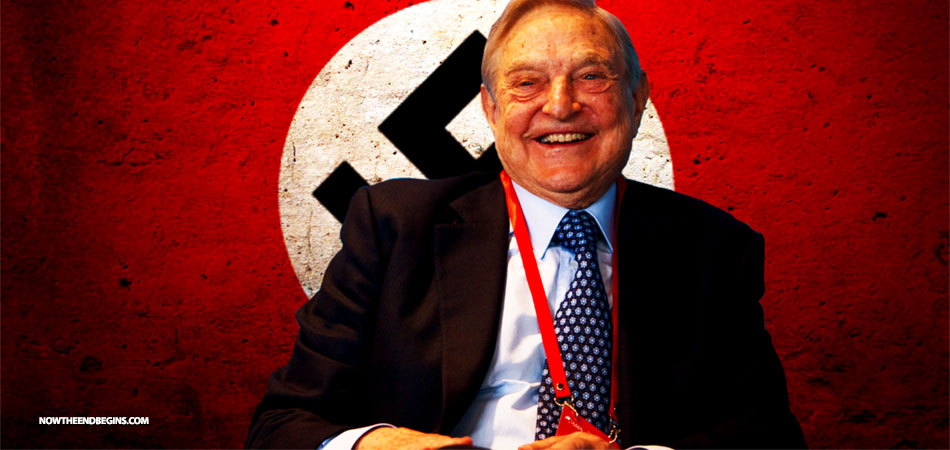
 George Soros9 years ago
George Soros9 years agoProof Of George Soros Nazi Past Finally Comes To Light With Discovery Of Forgotten Interview
-
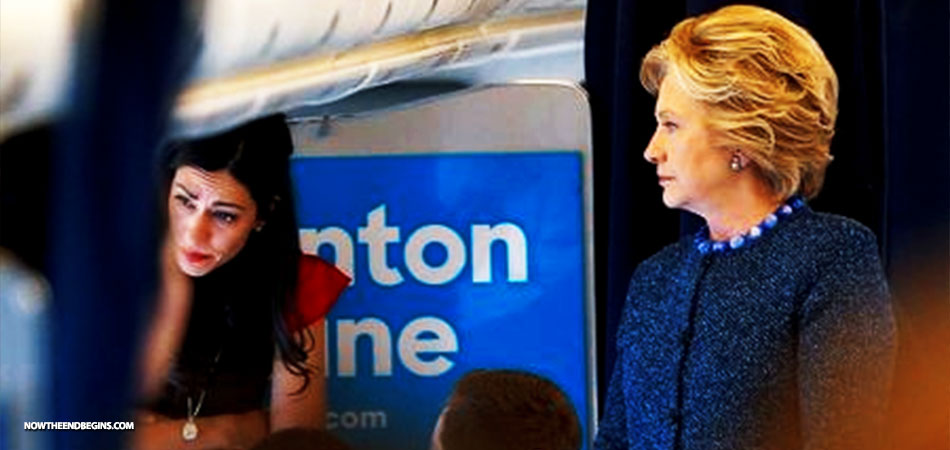
 Election 20169 years ago
Election 20169 years agoDEAD POOL DIVA: Huma Abedin Kept Those Hillary Emails That The FBI Found In A Folder Marked ‘Life Insurance’
-
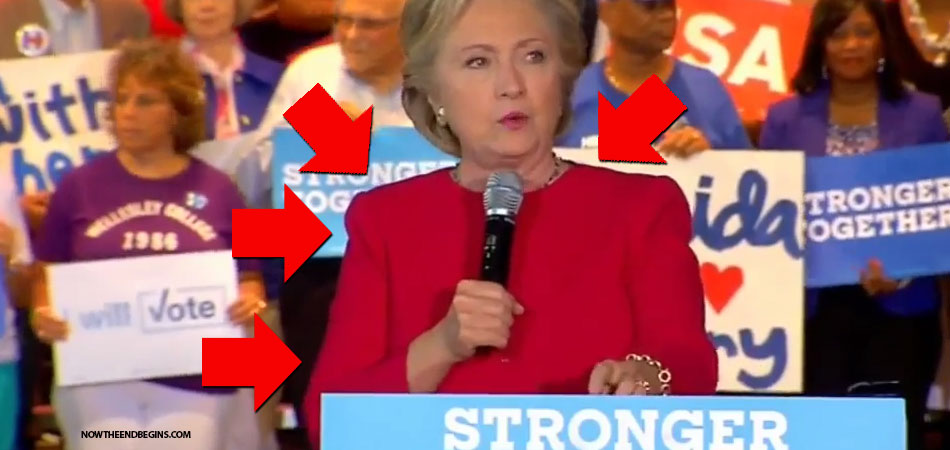
 Election 20169 years ago
Election 20169 years agoCrooked Hillary Campaign Used A Green Screen At Today’s Low Turnout Rally In Coconut Creek FL
-
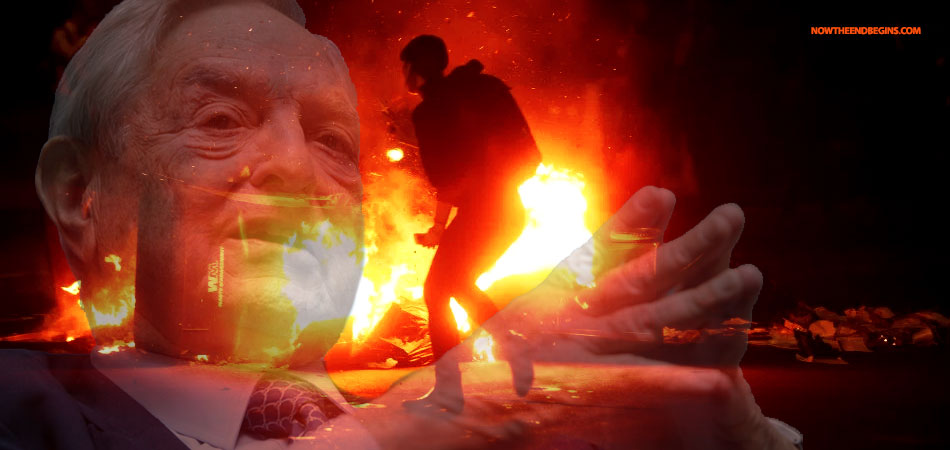
 George Soros9 years ago
George Soros9 years agoSORE LOSER: George Soros Declares War On America As Violent MoveOn.Org Protests Fill The Streets
-
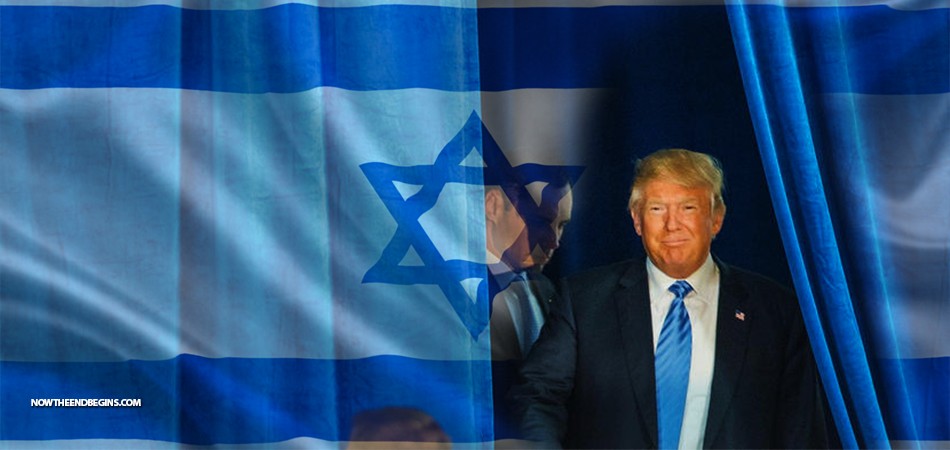
 Donald Trump9 years ago
Donald Trump9 years agoDonald Trump Will Be 70 Years, 7 Months And 7 Days Old On First Full Day In Office As President
-
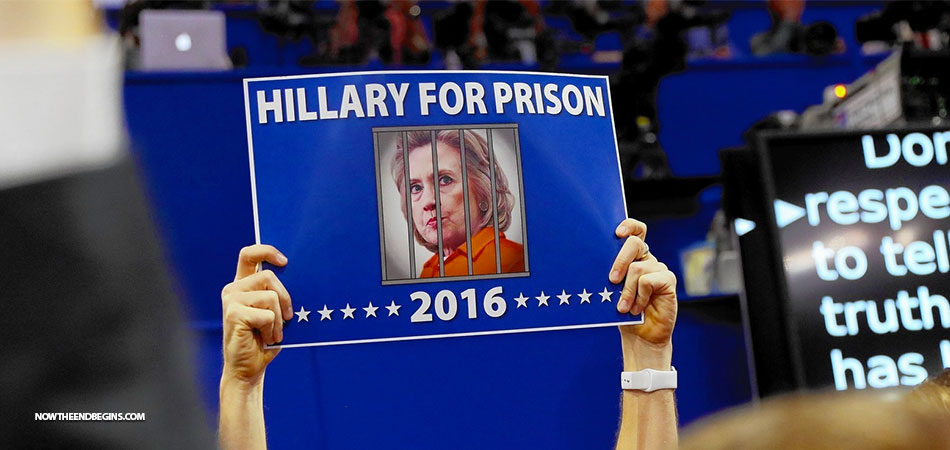
 Headline News9 years ago
Headline News9 years agoIf Hillary Is Not Guilty, Then Why Are Her Supporters Asking Obama To Pardon Her? Hmm…
-
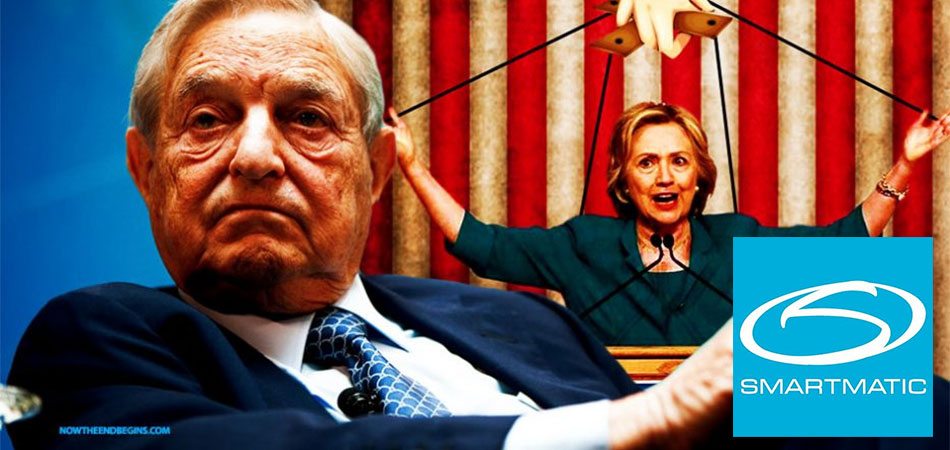
 Election 20169 years ago
Election 20169 years agoWikiLeaks Shows George Soros Controlling Vote With 16 States Using SmartMatic Voting Machines
-

 End Times9 years ago
End Times9 years agoFalse Teacher Beth Moore Endorses The Late Term Partial-Birth Abortion Candidate Crooked Hillary

































